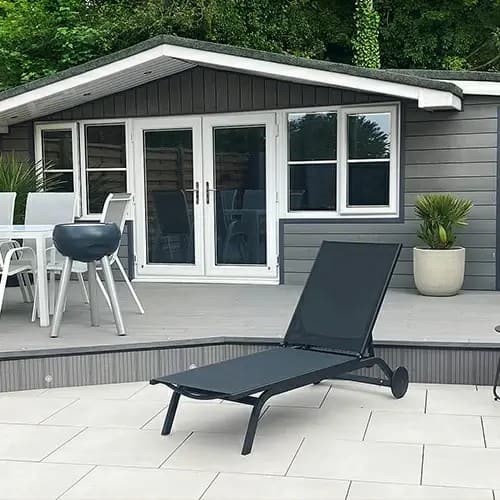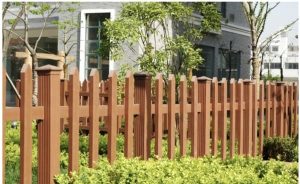Since cladding is designed to be exposed to intense sunlight, rain, snow, and wind, it should be durable, sturdy, and resilient. Sadly, wood doesn’t have these qualities and eventually will crack, peel, scratch, fade, and even rot in the long run. However, composite timber cladding is a perfect substitute that satisfies all the needs.
In this article, we explore what is composite timber cladding and what makes it so unique. We also discuss the weather resistance of composite wood cladding.
What Is Composite Timber Cladding?
Composite timber cladding is comprised of recyclable plastic and wood fiber to be a durable and long-lasting substitute for wood. The plastic comes from bottles and milk cartons which are combined with wood dust to make a composite and then poured into the mold to make the cladding panels.

What Makes Composite Timber Cladding Waterproof?
PET material is used to make plastic bottles. PET is referred to as Polyethylene Terephthalate. Crude oil produces ethylene, and turpentine is a chemical component of terephthalic acid. Together, they create a polymer that is incredibly waterproof. PET, however, degrades into tiny plastic particles that are eaten by plankton, fish, and other marine life, entering the food chain. Unifloor is actively committed to reducing contaminants and pollutants from entering the ocean by utilizing recyclable materials.

How Weatherproof Is Composite Timber Cladding?
Rain
Composite timber cladding is impervious to absorb moisture and water. Certain composite cladding panels have a polymer coating applied to the outer surface, preventing water from being absorbed and enabling it to just flow off your cladding material.
Wind
Because composite timber cladding is constructed by using a unique tongue and groove locking mechanism, the panels are incredibly secure and will withstand strong winds and storm impacts. With our high-quality composite wood cladding, you don’t need to worry about your cladding being damaged in heavy wind.

Heat
Compared to the wood cladding that is prone to fade and even melt in intense UV radiation, composite timber cladding is highly resistant to heat and sunlight and will not bend, split, or melt in extremely hot weather.
In addition to withstanding extreme weather conditions, composite wood cladding is extremely fade-resistant and won’t lose its polish from prolonged exposure to the sun.









